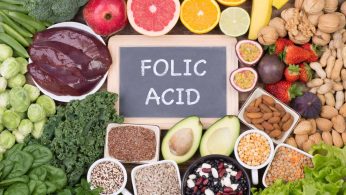Is Fasting Good For Your Health?
Disclosure: We use affiliate links and may receive a small commission on purchases.
 Is Fasting Good For Your Health?
thefitbay.com
Is Fasting Good For Your Health?
thefitbay.com
It really should be a no-brainer, if you want to get healthier and lose weight, then stop eating, and what better way than to fast. Every year, billions of Muslims around the world spend a month fasting from dawn to dusk, abstaining from food and drink as a show of their faith. It does not do them any physical harm, so why not you. A number of medical studies in recent years have shown periodic fasting, by giving up food and drink for a specific time, can be good for us. This has become one of the most popular dietary trends of the millennium. The singer Beyonce has talked about losing 20lbs (9kg) by fasting before beginning her role in the movie Dreamgirls, so it’s evident with influencers like her talking about fasting why it has become so popular. So we have to ask ourselves, would fasting help us lose weight, make us healthier, and prolong our lifespan?
Losing Weight

Medical experts agree that fasting will allow you to quickly lose weight, but it has its drawbacks. People are just as likely to put the weight back on just as quickly. Essentially, when fasting, the body loses fluids, and not fat, so the weight loss is not prolonged. Fasting also slows down the metabolism of the body, so when coming off a fast, the body cannot process the food intake as before, and people can put the weight back on just as quickly. Doctors say that if you have an underlying liver or kidney problem, fasting to lose weight can make the situation worse, and therefore it is inadvisable.
Fasting As A Detox
There is no clear-cut answer to how good fasting is a form of detoxing the body. Some doctors say there is no evidence to show that fasting helps the body which already has natural detox centers such as the liver, lungs, and colon. However, there are those of the opinion that fasting for those people who have a diet high in processed foods and low in antioxidants fasting can be a successful method of ridding the body of toxins that have built up over time. For those already eating a healthy diet of five fruits and vegetables per day, then there is no clear-cut benefit.
Fasting As A Medical Treatment
There is an amount of medical research and studies that suggest intermittent fasting can have a positive effect on a number of ailments and conditions. Medical advocates of fasting point to evidence of the effective treatment of serious conditions such as colitis, arthritis, depression, and some forms of heart disease. With an improved diet, fasting can help in cases of chronic skin conditions such as eczema and psoriasis. It can also help heal the digestive tract for those who suffer from Crohn’s disease and colitis. An animal study published in 2003 shows that mice forced to fast every other day, and then give double portions on the day they were allowed to eat had better insulin control, and resistance to injury. There have also been studies that show brief fasting can help with combating depression. There is often an impression that more of the same will speed up the desired effect. However, with fasting, this can be very dangerous, and anyone with an underlying medical condition is advised to seek professional advice before embarking on a fasting program. Pregnant women, those who are considered underweight, who may have cardiac arrhythmia, or impaired liver or kidney function should not fast.
Fasting can help you live longer

There are hundreds of animal studies where they are given fewer calories, and they live longer. Most of the research suggests that limited periods of fasting cycled with a restricted calorie intake diet will extend the lifespan. The corollary of that being a high-calorie diet will shorten the likely lifespan. So the conclusion some medical experts think we should take away from that is to eat healthy and fast periodically.
The Risks To Your Health From Fasting
As we talked about earlier, the initial result of fasting is that the body will lose fluids. Most people who start fasting experience dehydration. Muslims at Ramada are advised to drink lots of water prior to the fasting periods to ensure their body is probably hydrated. The same goes for anyone embarking on a fasting diet.

If you are used to having three meals a day, breakfast, lunch, and dinner, and snacks between embarking on a fast can be a considerable challenge. It is not unheard of that people fasting have increased stress levels, and their sleep is disrupted. The dehydration, lack of sleep, and hunger all add up during a fast and can lead to headaches. Without a regular food intake, there can be a reduction of stomach acid, and even thinking about food, or smelling it can cause the brain to trigger the stomach to produce more acid hence heartburn.
At the end of a fast, the body can feel it needs lots of food to make up for what is lost. It is a time when people can overindulge in foods, and with a lowered metabolism from the fasting, the body can put on excess weight through added fat. In some cases, simple fasting and eating have led to people putting on weight rather than losing it.
Fasting without fasting!
A few years ago, doctors from the University of Southern California published a study suggesting you can trick the brain into thinking it is fasting, and reap the benefits without doing away with food altogether. The fast-mimicking diet (FMD) triggered an immune cell generation in mice and extended their lifespan. A study with humans, who used the FMD for just five days a month for three months found it reduced risk factors associated with diabetes, cancer, heart disease, and aging. The FMD is a low protein diet, which is also low in unhealthy fats, and high in healthy fats. The diet stimulates low glucose levels and high levels of ketones as they mimic the effects of prolonged fasting. The doctors have been so encouraged by the results that they are going ahead with more extensive randomized trials. The eventual goal of having the diet recognized by the US Food and Drug Administration as a treatment to promote a longer lifespan among humans.










